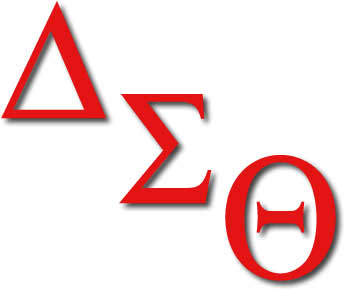The Department of The Navy has developed new ways for ambitious students of HBCUs and other minority-focused institutions (MIs) to grow into their career! Students can now expand their horizons with opportunities in STEM, defense, warfare systems, and more. Learn all about the new initiatives below in an article from Warren Duffie of the Office of Naval Research.

The Department of the Navy’s (DoN) Historically Black Colleges and Universities/Minority Institutions (HBCU/MI) Program—located at the Office of Naval Research (ONR)—is launching several major initiatives to increase student participation in naval internships and opportunities for faculty to conduct naval-relevant research.
“By expanding our outreach to a greater diversity of student populations, the DoN will strengthen existing partnerships, build new ones and better meet the challenges facing the Naval Research and Development Establishment,” said Frederick J. Stefany, acting assistant secretary of the Navy for Research, Development and Acquisition. “The HBCU/MI Program will help grow the acquisition workforce the nation needs to compete globally.”
Chief of Naval Research Rear Adm. Lorin C. Selby underscored Mr. Stefany’s comment:
“HBCU/MIs are hubs of intellectual energy and academic rigor. In this age of great power competition—when victory isn’t guaranteed on the battlefield—it’s crucial to have a well-educated, technology-savvy naval workforce to meet the challenge. HBCU/MIs play a vital role in this effort.”
The DoN HBCU/MI Program provides various opportunities for HBCU/MI faculty and students to collaborate with scientists and engineers at naval labs and warfare centers, on projects of mutual interest. These include student scholarships, fellowships and internships, as well as faculty summer sabbaticals.

“Although HBCU/MIs represent less than 2 percent of U.S. higher education learning institutions, they produce 25 percent of African-American STEM [science, technology, engineering, mathematics] graduates,” said Anthony C. Smith Sr., director of the DoN HBCU/MI Program. “These students offer diverse, unique approaches to solving naval science and technology challenges—and many of them even consider the naval workforce as a career.”
The new programs being launched this year are:
—Naval Summer Bridge Boot Camp—A partnership with an HBCU/MI to execute a five-week program for incoming freshmen interested in pursuing and earning an undergraduate degree in a STEM discipline. The boot camp will provide students with an intense exposure to STEM course workload and activities, with the goal of increasing academic success during the freshman year. Courses will include chemistry, physics, calculus, computer programming and “soft skills” such as public speaking, networking and professional development.
—Three new virtual internships at the Naval Sea Systems Command, Bureau of Medicine and Surgery and Navy Facilities Engineering Systems Command. These build on the existing DoN HBCU/MI Internships at Naval Air Systems Command, Naval Supply Systems Command, Naval Information Warfare Systems Command and the Naval Research Laboratory. All focus on providing HBCU/MI students with the opportunity to complete internships at various naval sites.
—Distinguished Fellows Program—A joint effort involving the DoN HBCU/MI Program, the Department of Defense HBCU/MI Program and Outreach, and the Office of the Under Secretary of Defense for Research and Engineering (Research, Technology and Laboratories), this initiative will provide six researchers (selected from six HBCU/MIs) with a full-time salary for three years—enabling them to focus exclusively on naval-relevant research, writing academic papers and abstracts, engagement with naval scientists and engineers, and mentorship.
“Many HBCU/MIs are teaching institutions where researchers are expected to teach three to five courses per semester, in addition to conducting research,” said Smith. “That’s significantly more than their counterparts at larger universities where some only perform research.
“The Department of the Navy’s increased investment in HBCU/MIs, through the Distinguished Fellow Program as well as the internships and boot camp, will strengthen these schools’ academic research—and prepare the next generation of naval scientists and engineers.”



